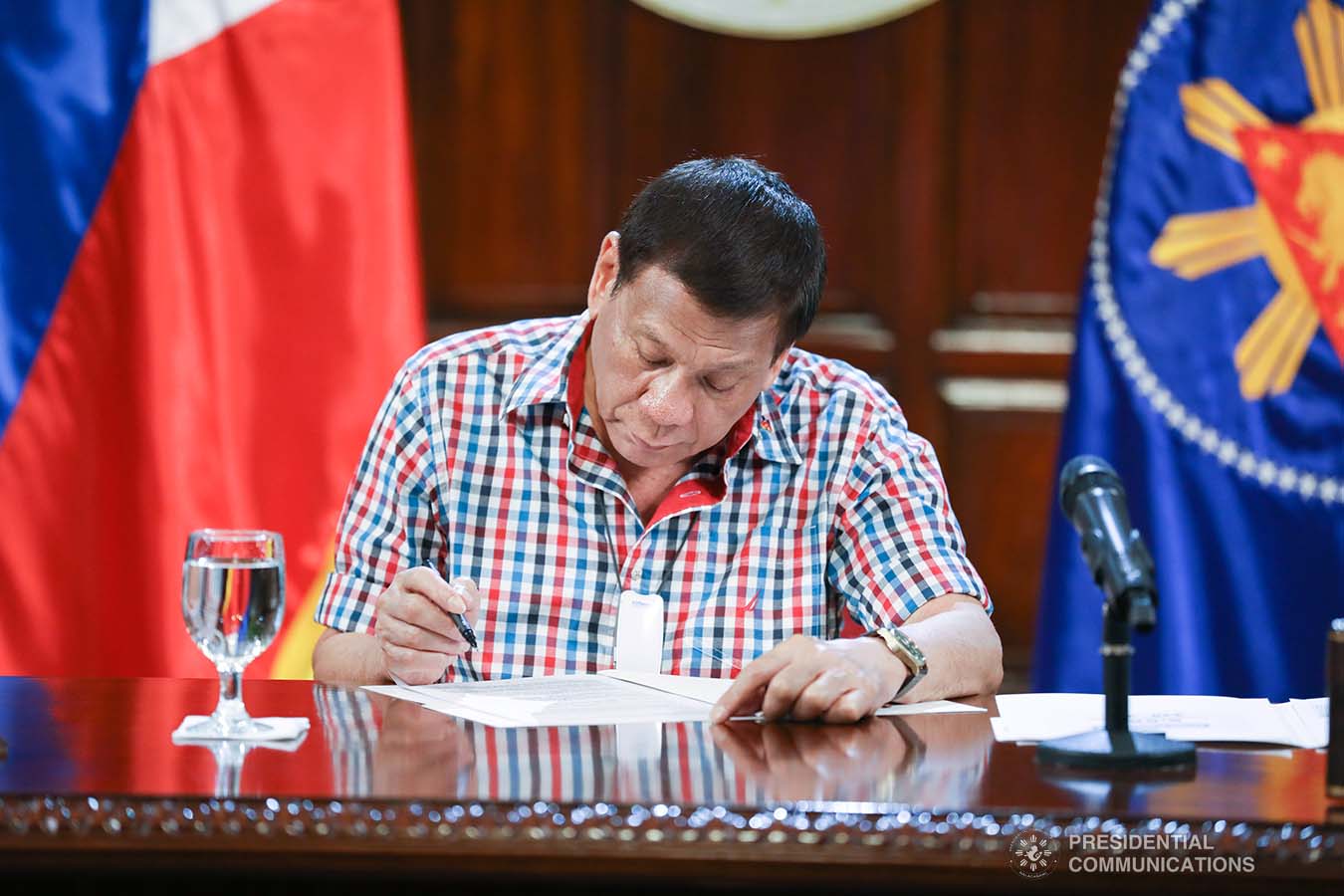
MANILA – President Rodrigo Duterte has signed into law a measure that seeks to give the country more teeth to curb terror threats and acts, Malacañang announced on Friday.
Presidential Spokesperson Harry Roque and Executive Secretary Salvador Medialdea confirmed in separate text messages that the anti-terror bill is already passed into law.
“Signed the bill into law earlier,” Medialdea said.
The Palace has yet to release a copy of the Anti-Terrorism Act of 2020.
This developed a day after Malacañang said the proposed anti-terror act was under final review at Medialdea’s office.
Duterte earlier certified as urgent the anti-terror bill to toughen up the government’s anti-terrorism policies.
The new law repeals Republic Act 9362 or the Human Security Act of 2007.
It seeks the detention of suspected terrorists for up to 24 days sans a warrant of arrest.
It also allows a 60-day surveillance with an allowable 30-day extension that can be conducted by the police or the military against suspected terrorists.
The law also imposes a 12-year jail term on a person who voluntarily or knowingly joins a terrorist organization.
Anti-terror law targets terrorists
In a separate statement, Roque allayed the Bangsamoro leaders’ concerns over the passage of the anti-terrorism act.
Roque ensured that the new law would secure the country by going after terror groups.
Thus, the anti-terror law does not target any regional or ethnic group, Roque said.
“Passing a class legislation against the Bangsamoro Autonomous Region in Muslim Mindanao (BARMM), I would like to stress, would not even cross the minds of the proponents of the said bill. This piece of legislation (anti-terror law) is against terrorists and terrorism and not against a particular regional/ethnic group,” he said.
On Thursday, BARMM leaders urged Duterte to veto the proposed anti-terror law.
In a resolution adopted by the Bangsamoro Transition Authority, the Moro leaders asked Duterte to “review and address the issue of vagueness” of the measure.
Bangsamoro Chief Minister Al-Haj Murad Ebrahim said the Bangsamoro leaders have raised worry that the anti-terror bill, once enacted into law, would lead to the rise in “incidents of violations of human rights” and would once again subject Bangsamoro people to “discrimination and abuse.”
Roque said Bangsamoro leaders may have prejudged the measure.
“We consider the concern that the bill would lead to abuse, especially to our Muslim brothers and sisters, unfounded,” he said.